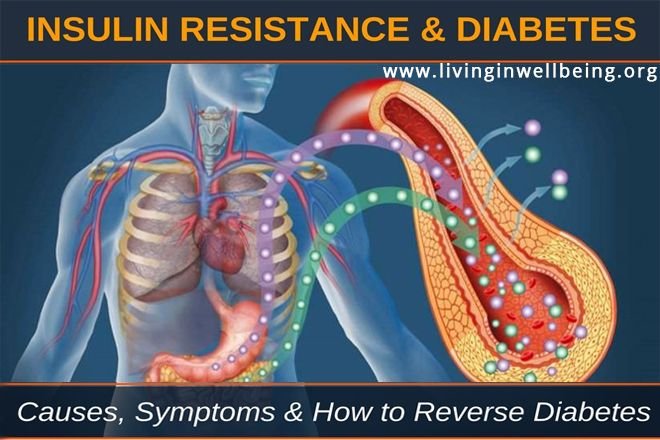
Insulin resistance is a worry that can occur to people and it also increases the risk of type 2 and prediabetes. It can further lead to chances of heart attack, stroke and serious health issues. In simple words, insulin resistance restricts the uptake of glucose in the body. The body gives signals and symptoms that indicate that one can be insulin resistant. It is important to find out and pay attention to the symptoms to take control with medication and prevent type 2 diabetes or prediabetes. In all ways, eating healthy is a simple way to treat health ailments and diseases.
Insulin resistance can reduce the effect of insulin in fat cells, leading to rise of triglyceride hydrolysis reserves when no measures are taken for raising the sensitivity of insulin to the body. Insulin resistance in the cells of the muscles will decrease the intake of glucose in the body. It will also cause disruption of the synthesis of glycogen in the liver cells and also fails to decrease the production of glucose.
What are the symptoms of insulin resistance?
The symptoms of insulin resistance are quite noticeable and if one notices a few symptoms in the body, they must consult a doctor immediately and take proper medication. The symptoms are explained in the points below:
Overweight/excessive weight gain -
Excessive weight gain can be confusing as it may indicate various health issues. But, when we talk about insulin resistance, excessive weight gain is a major symptom of insulin resistance. Overweight people have further resistance to glucose uptake and that will lead to insulin resistance. Physical benefits of exercise can help reduce the body weight gain problems.
Skin troubles –
The skin tends to get dull, dry, itchy and patchy. When one feels that their skin condition changes, then there are chances that one may have insulin resistance. It is important to get the important skin tests done in order to determine the condition.
Poor sleep patterns-
Sleep problems or insomnia is again an important symptom that indicates that one may be suffering from insulin resistance. Sleep apnea is a common sleep related condition that makes one feel weak and they also face troubles in breathing.
High blood pressure problems-
High blood pressure is a common problem and can indicate health issues. People who have weight problems and also suffer from high blood pressure have strong chances of being insulin resistant.
Excessive thirst-
A dry throat might again be an indication of insulin resistance and those who may be suffering from a few related symptoms, they must not let this go out of mind. It is important to consult a doctor and get checked for insulin resistance
Fatty liver-
The liver might get a layer of fat due to insulin resistance. If one has about 5-10% of fatty liver, there are high chances that one may be suffering from insulin resistance. Fatty liver is a serious problem in itself and it needs immediate medical care and attention.
Increase in hunger and appetite-
One might feel hungry and have an enlarged appetite when they may be suffering from insulin resistance. As there is increased body weight, one may have excessive weight gain and that simply indicates insulin resistance.
Restricted growth-
The high levels of insulin can lead to body growth restrictions. Though adults do not have enough boy growth, but one can feel the hormones change and that is reason enough to check with the doctor.
Reducing the risks of insulin resistance
Insulin resistance can be reduced when you follow certain steps.
Make sure that you exercise for at least 30 minutes a day with the help of quick and fast activities. Exercising for a minimum of five times in seven days can bring a lot of change.
Switch on to healthy eating habits like eating fruits, vegetables, whole grain, nuts and lean protein.
Weight of your body should always be kept at normal level. If you experience, overweight, make sure to indulge in any kind of weight loss program that is healthy for you.
Consuming high carbohydrates can lead to an increase in blood sugar level. Hence, avoiding raw sugar, white bread and corn can help. Make sure to avoid junk food and products made out of potatoes.
Make sure to consume food with low glycemic index like brown rice or whole wheat bread.
Check with the doctor for health care benefits and get a proper diagnosis for your health conditions.












